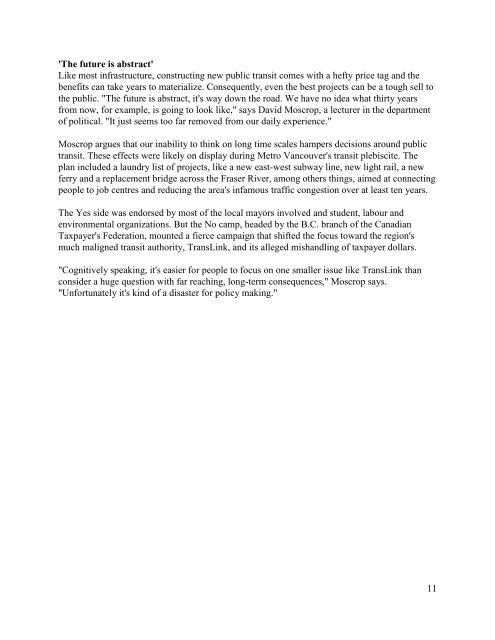Culmiating Task-3.pdf
- No tags were found...
Create successful ePaper yourself
Turn your PDF publications into a flip-book with our unique Google optimized e-Paper software.
'The future is abstract'Like most infrastructure, constructing new public transit comes with a hefty price tag and thebenefits can take years to materialize. Consequently, even the best projects can be a tough sell tothe public. "The future is abstract, it's way down the road. We have no idea what thirty yearsfrom now, for example, is going to look like," says David Moscrop, a lecturer in the departmentof political. "It just seems too far removed from our daily experience."Moscrop argues that our inability to think on long time scales hampers decisions around publictransit. These effects were likely on display during Metro Vancouver's transit plebiscite. Theplan included a laundry list of projects, like a new east-west subway line, new light rail, a newferry and a replacement bridge across the Fraser River, among others things, aimed at connectingpeople to job centres and reducing the area's infamous traffic congestion over at least ten years.The Yes side was endorsed by most of the local mayors involved and student, labour andenvironmental organizations. But the No camp, headed by the B.C. branch of the CanadianTaxpayer's Federation, mounted a fierce campaign that shifted the focus toward the region'smuch maligned transit authority, TransLink, and its alleged mishandling of taxpayer dollars."Cognitively speaking, it's easier for people to focus on one smaller issue like TransLink thanconsider a huge question with far reaching, long-term consequences," Moscrop says."Unfortunately it's kind of a disaster for policy making."11


